All Stories
-

-

So much is lost when fossil treasures go private
Editor in chief Nancy Shute discusses how science and the public lose when fossils are privately sold.
By Nancy Shute -
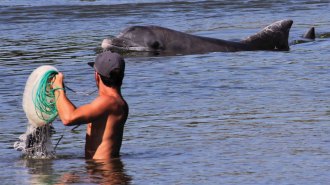 Animals
AnimalsHere are 3 people-animal collaborations besides dolphins and Brazilians
Dolphins working with people to catch fish recently made a big splash. But humans and other animals have cooperated throughout history.
-
 Life
LifeHow plant ‘muscles’ fold up a mimosa leaf fast
A mimosa plant revs up tiny clumps of specially shaped cells that collapse its leaflets, though why isn’t clear.
By Susan Milius -
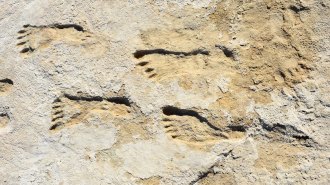 Humans
Humans50 years ago, scientists debated when humans first set foot in North America
In 1973, archaeologists debated when people first arrived in the Americas. Mounting evidence suggests its much earlier than they thought.
-
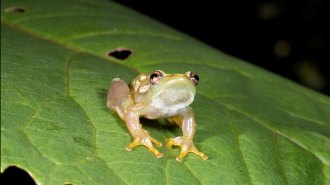 Animals
AnimalsA newfound ‘croakless’ frog may communicate via touch
A newly discovered frog species in Tanzania joins a rare group of frogs that don’t croak or ribbit.
-
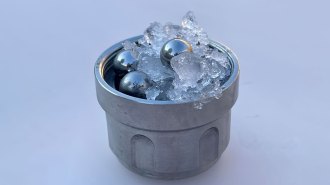 Physics
PhysicsWater is weird. A new type of ice could help us understand why
A newfound type of amorphous ice with a density close to liquid water could help scientists make sense of water’s quirks.
-
 Animals
AnimalsAre your cats having fun or fighting? Here are some ways to tell
Certain behaviors indicate if your cats’ interaction is friendly, aggressive or something in between, a new study finds.
-
 Archaeology
ArchaeologyVikings brought animals to England as early as the year 873
A chemical analysis of cremated remains offers physical evidence of the arrival of Norse animals to England in the ninth century.
By Anna Gibbs -
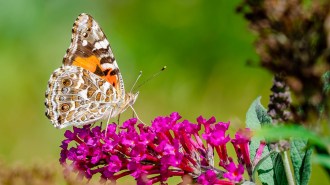 Life
Life76 percent of well-known insects fall outside protected areas
Protected areas can provide safe havens for insects, but many existing ones fall short, a new study finds.
By Freda Kreier -
 Archaeology
ArchaeologyChemical residue reveals ancient Egyptians’ mummy-making mixtures
Chemical clues in embalming vessels reveal previously unknown ingredients used to prepare bodies for mummification and their far-flung origins.
By Bruce Bower -
 Science & Society
Science & SocietyHere are 7 new science museums and exhibitions to visit in 2023
The Grand Egyptian Museum is slated to open, as well as new exhibitions dedicated to space travel, the Galápagos Islands and more.
By Erin Wayman